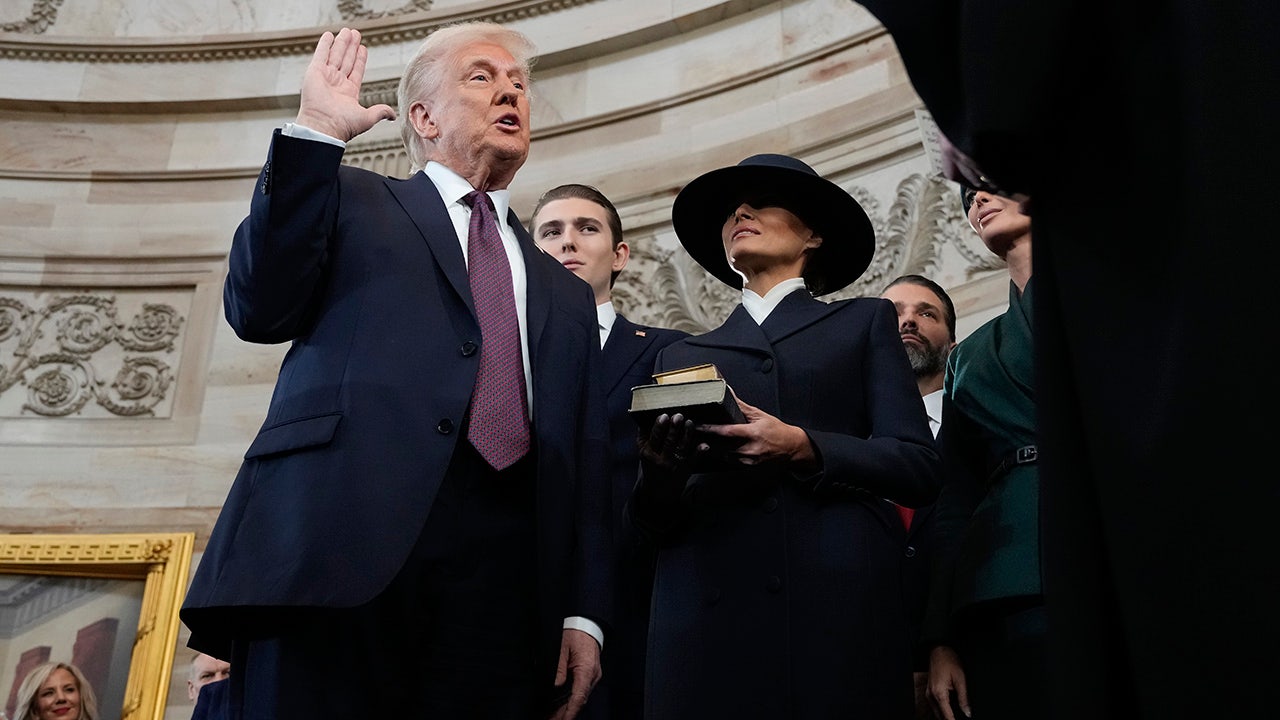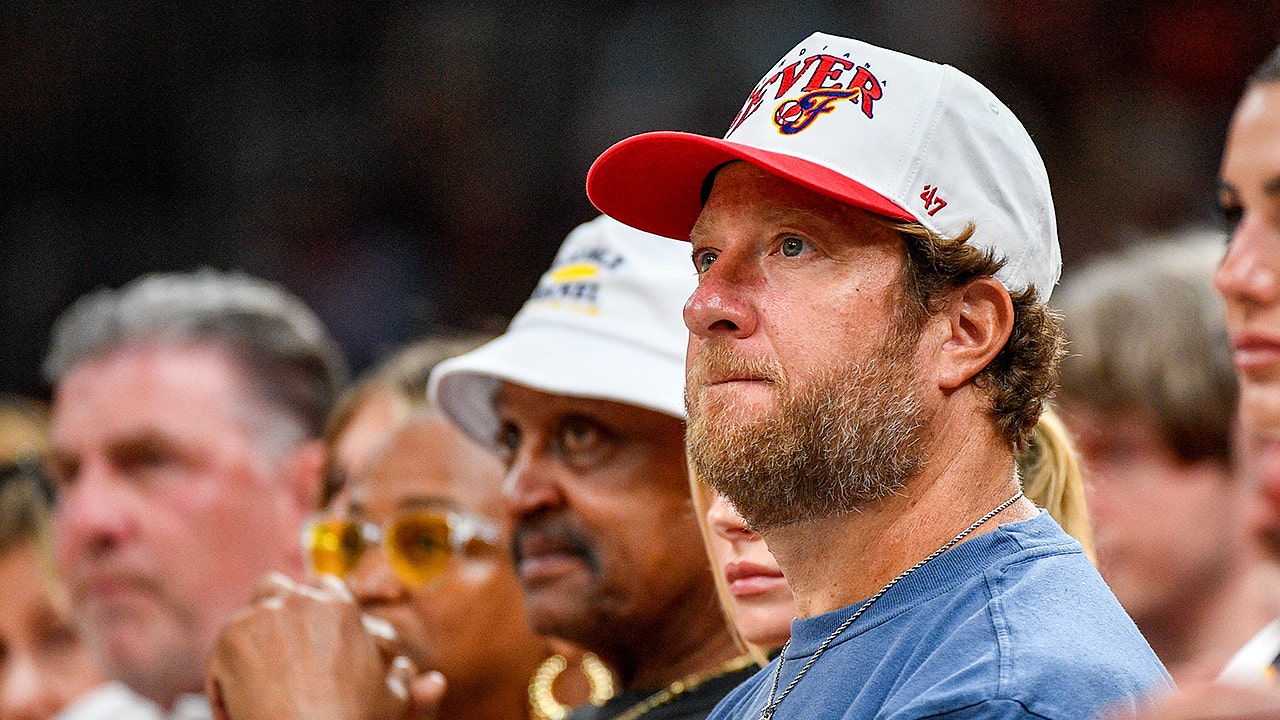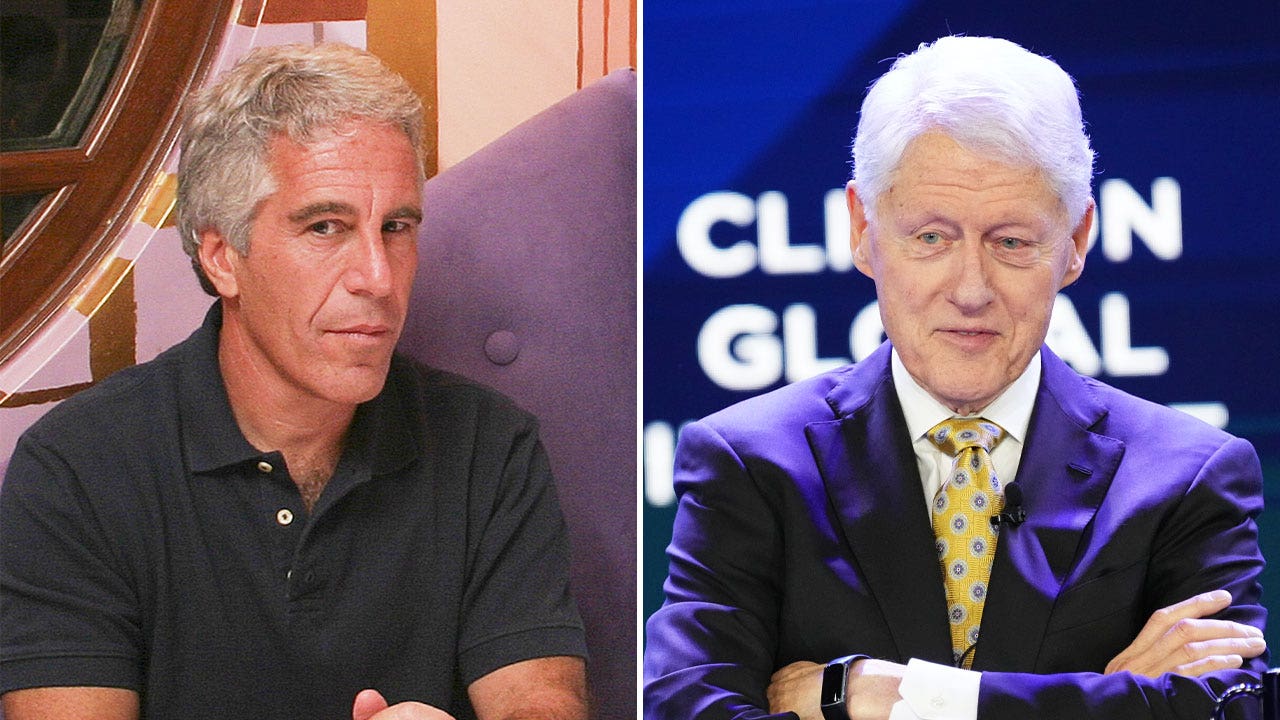Trump doesn’t place hand on Bibles during inauguration

President Trump made headlines on Monday when he chose not to place his hand on a Bible while taking the oath of office for his second inauguration. This departure from tradition raised eyebrows and sparked conversation on social media.
Chief Justice John Roberts administered the oath to Trump, instructing him to raise his right hand and repeat the words of the oath. As Trump raised his hand, First Lady Melania Trump approached with a stack of Bibles. Instead of placing his hand on the Bibles, Trump kept his hand by his side and continued with the oath as his family stood behind him.
Melania held two Bibles – the Lincoln Bible and her husband’s personal Bible given to him by his mother. Interestingly, Trump had placed his hand on both Bibles during his first inauguration in 2017. The reason for this deviation from the norm was not immediately clear as Trump’s team did not provide a comment on the matter.
While it is customary for the incoming president to place a hand on a Bible during the oath, the U.S. Constitution does not mandate this practice. Article VI of the Constitution states that the president must take an oath of office without any religious test. The exact language of the oath is specified in Article II, with the option to add the phrase “so help me God” being a personal choice rather than a requirement.
Historically, presidents have often added the phrase “so help me God” and placed their hand on a Bible while taking the oath. However, there is no legal obligation to do so. In fact, the Constitution does not stipulate that a Supreme Court justice must administer the oath, though it has become a tradition for inaugurations.
The tradition of placing a hand on a Bible during the oath dates back to the first inauguration of President George Washington. Over the years, presidents have followed this practice, with some adding the phrase “so help me God” for personal reasons. While Trump’s decision not to place his hand on the Bibles may have surprised some, it is within his rights as outlined in the Constitution.
As the 47th President of the United States, Trump’s inauguration marked a departure from tradition in this aspect. Whether this choice holds any significance beyond the ceremony remains to be seen. It is a reminder that even in the most ceremonial of occasions, the president has the freedom to uphold or deviate from established practices.




